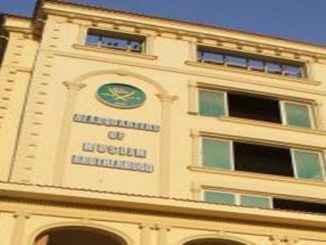
Has the dream about a democratic transition in Egypt become an illusion? Three years have passed since June 30, 2013, when General Abdel-Fattah al-Sisi ousted President Mohamed Morsi, based on a public move that was looking for a real democratic change.
This was introductory to a report published on France24. The report stated that 3 years after June 30 demonstrations, which paved the road to the military coup to overthrow President Mohamed Morsi, the scope of disappointment in achieving a democratic transition has extended in Egypt with the increasing restrictions on freedoms.
During the last few years, Egypt has witnessed unprecedented repressive campaigns against the Muslim Brotherhood, extending to other young activists, who triggered January Revolution against Hosni Mubarak in 2011.
France24’s report said that in the last few months, fear has escalated from the Egyptian regime constraints on public freedom and the freedom of expression.
Recently, the head of the Press Syndicate Yahiya Qalash and two of the syndicate members have been put on trial in a precedent since the syndicate’s establishment 75 years ago- for harboring fugitives inside the syndicate building.
The Egyptian security forces have stormed the Syndicate building for the first time in Egypt’s history. They arrested two journalists who were organizing a sit-in inside the Syndicate’s building against journalists’ mass arrests ahead of April 25 demonstrations. Protests sparked against al-Sisi’s transfer of Tiran and Sanafir islands to Saudi Arabia.
In this context, Gamal Eid-the rights activist- said that “Without exaggeration, human rights situation in Egypt is the worst in Egypt’s history.” He also added that ”According to rights organization documents, the number of political prisoners in Egypt has reached nearly 60,000, most of them are Islamist.”
The rights activist who participated in the revolution against Mubarak and also in demonstrations against Morsi- said that ,”When I remember June 30, I feel that we were betrayed and used by an arm of the state institutions (the military) not to topple the Muslim Brotherhood and establish a democratic state, but we were used by the military which is part of Mubarak’s regime to steal the power,” adding, “They used the public’s move against the brotherhood to reach power,” Gamal Eid said.
The Executive Director of the Arabic Network For Human Rights continued saying, ”We felt at a moment that the Brotherhood has betrayed the revolution and they no longer care about democracy and social justice, and we really wanted early elections where Morsi is allowed to nominate himself once again.”
Al-Sisi, who was the Egyptian Chief of Staff during Morsi’s presidency, named June demonstrations “June 30 revolution” and he relied on his popularity at that time to oust Mohamed Morsi and detain him after three days.
One Year later, al-Sisi became president in May 2014 (following controversial elections). However, al-Sisi’s popularity among the Egyptian public, who used to see him as the “savior”, has sharply declined, according to the political analyst Mustafa al-Sayed.
The political science professor at the American University in Cairo (AUC) said that, “There is a massive discontent from the economic policies among the majority of the citizens,” pointing to the price increase due to the increase in the monthly inflation to 3.15% in May 2016 compared to 1,24% in the previous month.
Accordingly, the annual inflation rate in May reached 12, 23% compared to 9,15% the previous month, according to the Central Bank of Egypt’s statements.
Al-Sayed continued, “The discontent among the businessmen has increased from the expanded military economic role as well as the restriction of freedoms especially after the Press Syndicate crisis and the discontent toward Sisi’s ceding the two Red Sea islands to Saudi Arabia.” ”They are all signs of the decline in al-Sisi’s popularity.”
On the other side, al-Sisi’s supporters believe that Egypt is moving on the right track. Mahmoud Badr-the founder of “Tamarod” movement which called for the June 30 demonstrations- said that the demonstrations have achieved their goals in “Achieving national independence, withdrawing from U.S. dependency and improving the economic and social conditions for the citizens. I believe we are moving on the right track.”!!
Moheb Doss, one of “Tamarod”’s co-founders and main organizers, says the group’s leaders had received communications from the Army and other state institutions to turn against Morsi .
Badr-who was elected in the parliament in “For the love of Egypt” list (Pro-Sisi), said that the demonstrations were against the Muslim Brotherhood, “As they were part of the American project to dominate the region and contain the Arab Spring.”!!!



